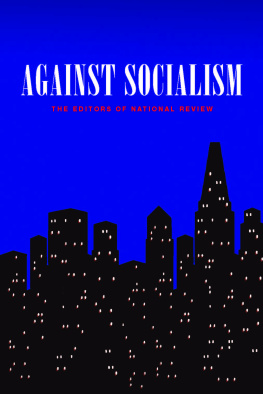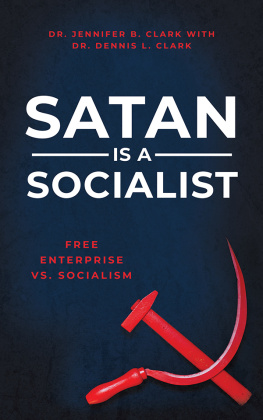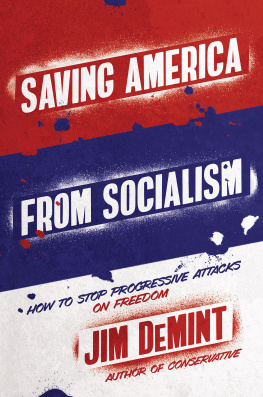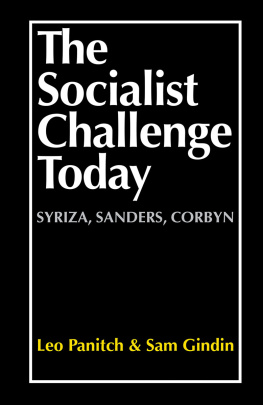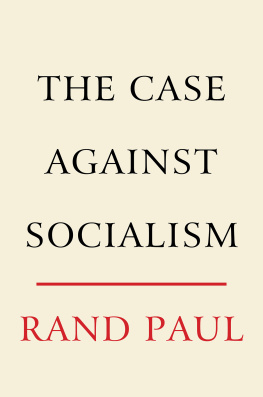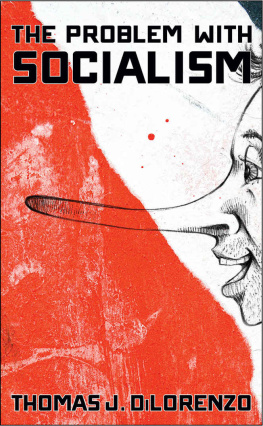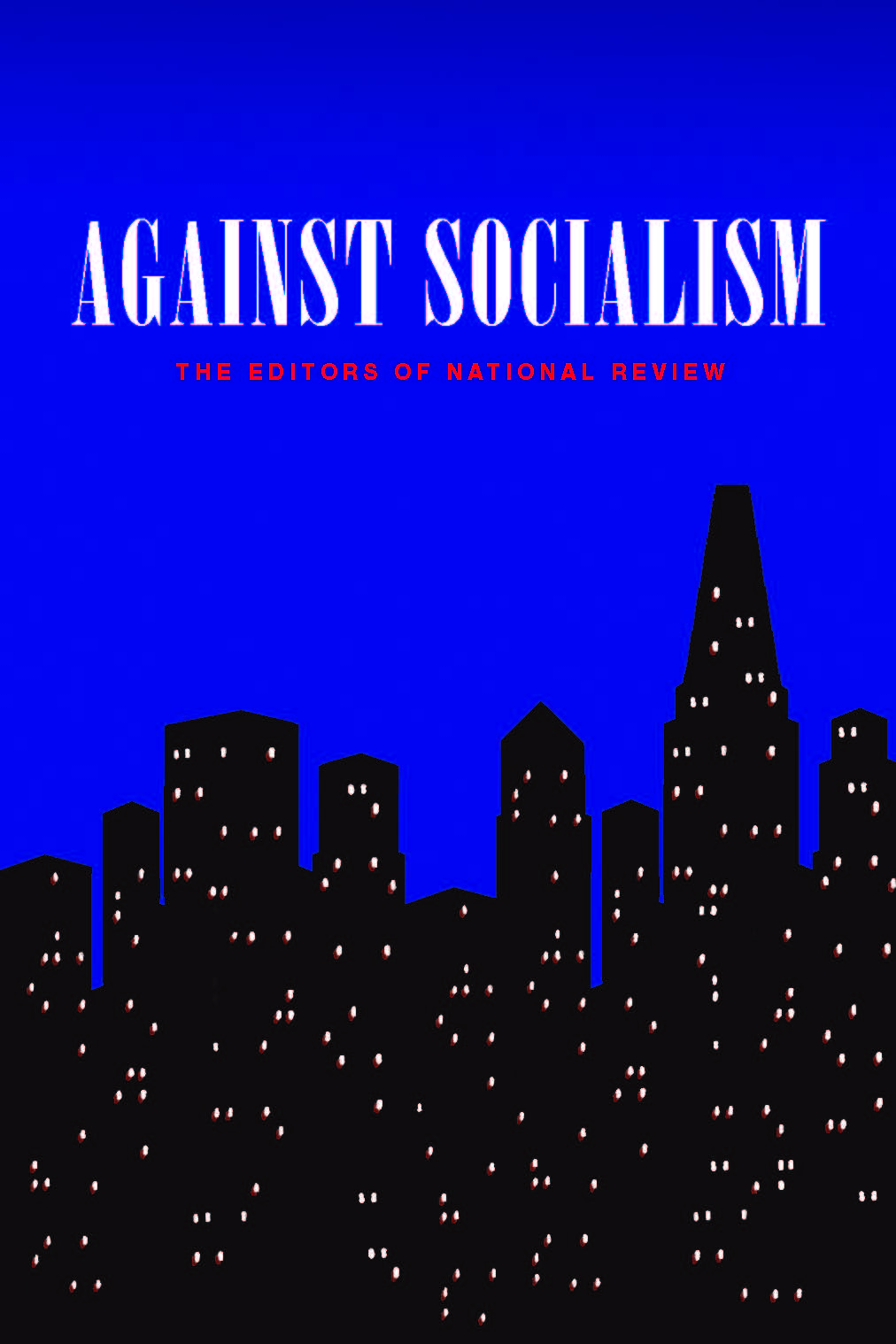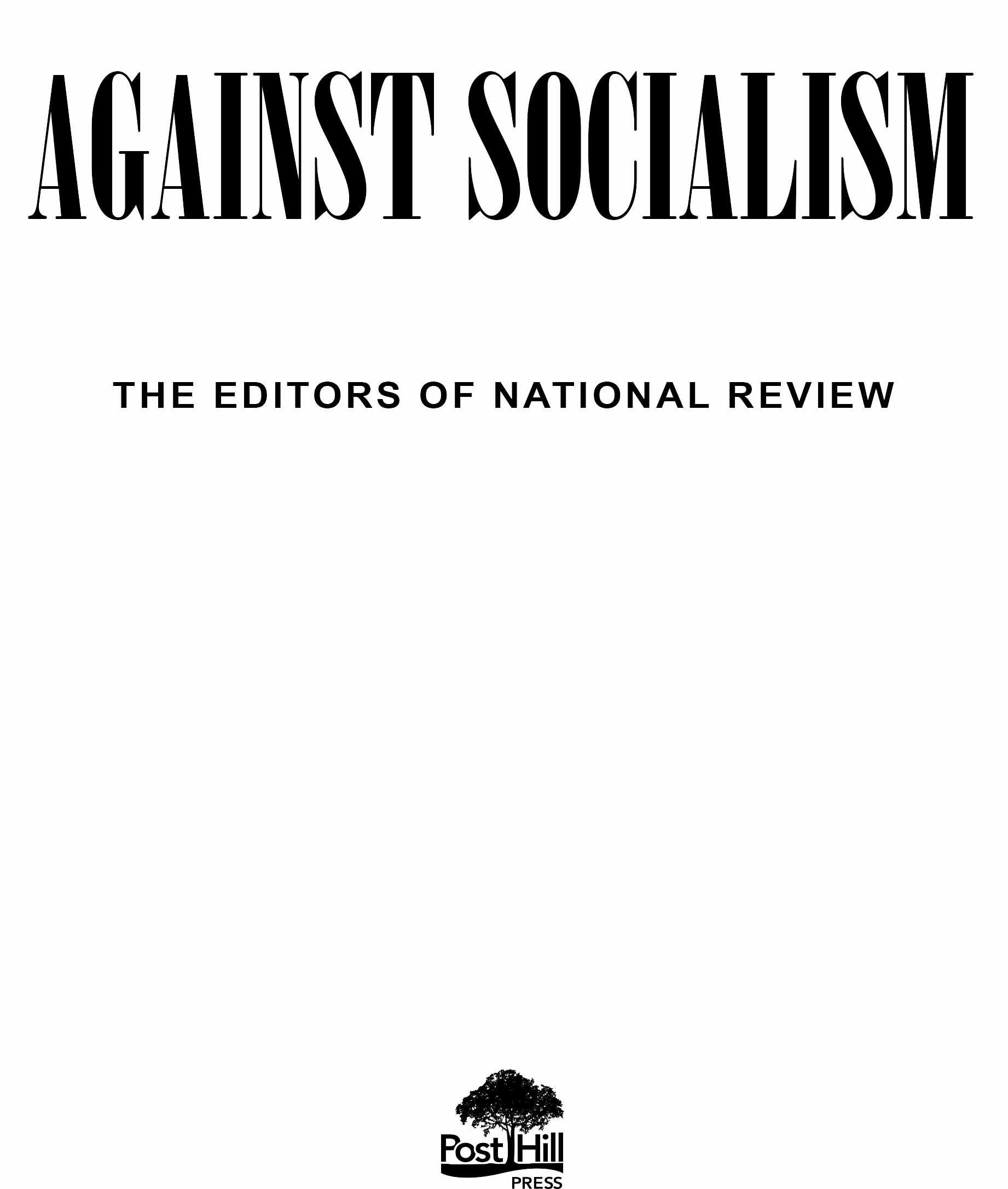About National Review
N ational Review is Americas premier conservative magazine. Edited by Rich Lowry, the fortnightly was founded in 1955 by William F. Buckley Jr. In its premier issue, the editors stated in the magazines Credenda that among its primary convictions and intentions were the protection of free markets (the competitive price system is indispensable to liberty and material progress), the defeat of Socialism (the centurys most blatant force of satanic utopianism), and the defense of the organic moral order (the profound crisis of our era). Famously stating that National Review stands athwart history, yelling Stop, that pledge and commitmentand those philosophical concernsremain as real and vital today as they were over six decades ago.
A POST HILL PRESS BOOK
ISBN: 978-1-64293-455-7
ISBN (eBook): 978-1-64293-456-4
Against Socialism
2019 by National Review
Cover art by Luba Kolomytseva
All Rights Reserved
No part of this book may be reproduced, stored in a retrieval system, or transmitted by any means without the written permission of the author and publisher.

Post Hill Press
New York Nashville
posthillpress.com
Published in the United States of America
Table of Contents
Against Socialism Special Issue
Nor is it compatible with the Constitution
The idea millions killed and died for was a mirage
How socialism causes shortages
Central planners never know enough, and mayhem tends to follow
Why the ideology failsand succeeds
French statism has been anything but progressive
Britains 1970s experiments with statism, and the stagnation they wrought
Markets are better for the environment
Imagine a shoe store with just one brand of sneakers; now apply that to medical care
Alienated people are turning to Marx and Ocasio-Cortez
It becomes part of a cherished identity, hopefully not for long
Socialism destroys the human character
In Defense of Markets Special Issue
Economic liberty is intrinsically good
When the world stopped having to be poor
Or, Stalin was a bureaucrat
The economy over the decades
It thought better of its experiment with bossy government
It is economic and moral
What Beijing has established is not a market economy
The Spirit of Democratic Capitalism grounds markets in the Judeo-Christian tradition
Dont write off Millennials and Gen Z
Though no defense is needed
An immigrant perspective
Capitalism draws on pre-liberal roots that are important today
Introduction
By Rich Lowry
S ocialism is back. T. S. Eliot said that there is no such thing as a Lost Cause, because there is no such thing as a Gained Cause. We thought our Gained Cause was having vanquished domestic socialism forevermore after the collapse of Soviet Communism in 1989. In the 1990s, Bill Clinton operated within the broad economic consensus established by Ronald Reagan, and when Republicans called Barack Obama a socialist, some on the left considered it a racially charged smear. But here we are: A self-avowed socialist nearly won the Democratic nomination in 2016 and is a serious contender this time. Another socialist, Alexandria Ocasio-Cortez, is the hottest thing in progressive politics today. The Green New Deal and Medicare for All are proposals for sweeping aggrandizements of government power on a scale not seen in this country since the New Deal, if ever. Meanwhile, some on the right are raising questions about free markets, or even rejecting them. If for nothing else, NR exists to stand up for important truths, even when they are embattled or out of favor. It is in that spirit that we publish this book, a twin special issue making the case for markets and against socialism. If our cause wasnt nearly as gained as we thought two decades ago, it is incumbent on us to make the argument for it more vigorously than ever. Thanks for reading.
SOCIALISM IS
NOT DEMOCRATIC
Nor is it compatible with the Constitution
by Charles C. W. Cooke
B ack in 2011, while covering Occupy Wall Street, I was accosted by a man wearing a large cardboard box. On this box, which he wore around his torso as might a child pretending to be a robot, he had scribbled down a theory that, at first glance, seemed more sophisticated than most that were on display. Hey, man , he said to me, its up to us .
To explain, he turned around to reveal the other side of the box, which bore a single word: DEMOCRACY. Then, having paused for effect, he turned around again and pointed to the front, on which he had written down almost every single economic system that had been tried in human history: CAPITALISM, SOCIALISM, MERCANTILISM, AUTARKY, DISTRIBUTISM, FASCISM, FEUDALISM, POTLATCH, MUTUALISM, and so forth. Its up to us , he said again. Its our democracy, and we can choose the economy we want.
Further conversation revealed that he believed this quite literally. In his view, democracy was the sole nonnegotiable element of our political system, while everything else was up for grabs. If a majority wanted to nationalize the banks or abolish private property or bar all international trade or invade Brazil and harvest its resources, that was its prerogative. As might be expected, he had a prediction and a predilection: Socialism, he explained, was both the most likely system to be adopted, because it catered to the majority, not the 1 percent, and the best, because it would fix all of Americas problems without any downsides.
Its up to us .
I have thought about this conversation frequently since then, because it highlights some of the core misconceptions held by socialisms champions, which are, in no particular order, that the retention of a democratic system of government makes massive state intervention more acceptable, that capitalism is a system in the same way as is socialism, and that liberal democracyand, in particular, Americas brilliant constitutional ordercan survive the establishment of a socialist economy. Because I was there to write about the protests rather than to get into prolonged arguments, I listened and probed rather than disputed his contention. Had I been debating him, however, my rejoinder would have been a simple one: No, its not up to us.
Or, at least, its not up to us in the way that my friend in the cardboard box was using the word us. As I write, ascendant elements within the American Left are engaged in a sustained attempt to reintroduce and rehabilitate the word socialism, in part by prepending to it a word that has a much better reputation and an infinitely better historical record: democratic. Voters should not be fooled by the rebranding, for there is no sense in which socialism can be made compatible with democracy as it is understood in the West. At worst, socialism eats democracy and is swiftly transmuted into tyranny and deprivation. At bestand I use that word looselysocialism stamps out individual agency, places civil society into a straitjacket of uniform size, and turns representative government into a chimera. The U.S. Constitution may as a technical matter be silent on most economic questions, but it is crystal clear on the appropriate role of government. And the government that it permits is incompatible with, and insufficient to sustain, socialism.

